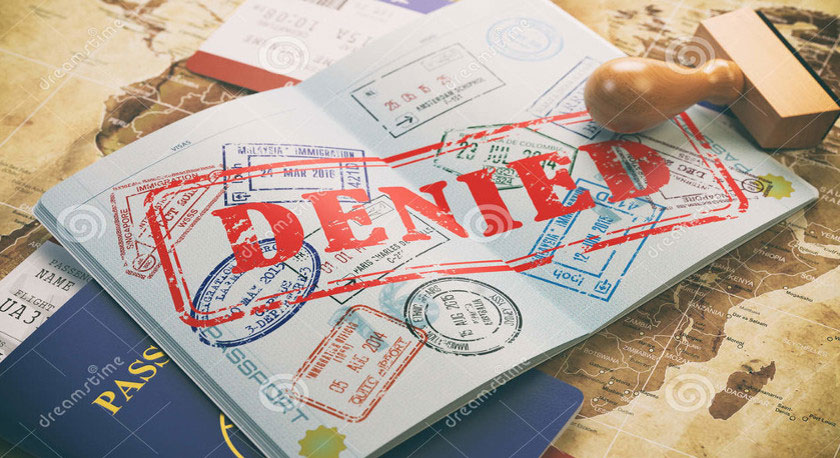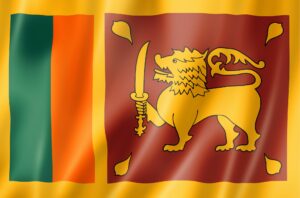Not all passports are created equal so not all passport-holders are treated equally.
How often can you feel this impact almost every element of your life? From the holidays you take, to how you conduct business, to the prospects your children enjoy.
Let’s look at why some passports are more powerful than others, what that means for you, and how to turn the tables if you do face limiting sanctions.
How does your passport impact you?
Some passports go further than others thanks to the commissioning country’s international relationships. If your country has a troubled economic or political outlook, those relationships suffer. This has very little to do with you, the citizens of that country, yet it’s you, the citizen, that suffers the effects.
Citizens from any EU country can live, work and travel without a visa anywhere in the 28-member bloc. If political instability in Spain made life untenable, you could simply move on to Norway.
What’s more, the most powerful passports in the world can travel to 160 countries or more, but this is not the reality for citizens across most of the world. The least powerful passports sit in the low double-digits. Citizens of Afghanistan, for instance, can travel to 25 countries on visa-free or visa-on-arrival terms. That’s 139 less than the most powerful, Singapore, at 164.
Iraq, Pakistan, Syria, Somalia, Sudan, Yemen, Libya, Sri Lanka, Nepal – the list of countries in a similar situation goes on. Over 100 countries can travel to fewer than 100 countries on visa-on-arrival or visa-free terms, and getting a visa is often impossible, not just time-consuming.
Over 100 countries can travel to fewer than 100 countries on visa-on-arrival or visa-free terms, and getting a visa is often impossible, not just time-consuming.
Another place to call home
That’s the bad news. The good news is, if you have the financial means, then there’s something you can do about it. Second citizenship is the ultimate way of bypassing many of your native country’s passport restrictions, but for many years it was only available if you were born into, married into or awarded dual nationality. That was true until 1984, when St. Kitts and Nevis turned citizenship into a commodity with the world’s first citizenship-by-investment programme.
Since then, the floodgates have opened and investors with the right financial credentials can secure second citizenship easily. And with it, the ability to side-step the issues we’ll discuss below.
So let’s get beyond all these statistics. What does a limited passport really mean from your perspective? And how can a second citizenship help you break those limits?
International travel
Business: Travel sanctions make doing international business extremely difficult; you can’t attend international meetings at short-notice because of the bureaucracy that comes with visa clearance.
Delaying meetings means delaying decision-making and action, which all affects the bottom line when necessary work isn’t being done, or isn’t being done fast enough.
If you send a representative, you’re not giving the best impression; it seems you don’t care enough to attend in person. Businesspeople in other countries might not understand or empathise with anything passport/visa related.
You can sidestep the issue by avoiding business in countries with difficult visa conditions, but this does mean you’re missing opportunities for business growth.
Personal: Even if you don’t need to travel internationally, you probably want to. Things that many citizens take for granted – whisking your partner on a last-minute romantic trip, spur-of-the-moment backpacking, or even moving to another country for a little or long time – simply aren’t an option with a limited passport.
You have to sacrifice spontaneity and choose destinations based on where you’re allowed to go, not just where you want to go.
Second citizenship – Caribbean dreams: Whether your primary concern is business or pleasure, a second passport means you can take advantage of opportunities to travel freely. The Caribbean programmes average around 125 countries on visa-free or visa-on-arrival terms, for instance, while European programmes such as Malta or Cyprus are nearer 160. Your new passport can help you completely bypass travel sanctions.
Second citizenship – freedom to relocate: A second passport means you’re free to relocate. Maybe you fancy a change of pace and want to set up shop on a Caribbean beach somewhere, or maybe you want a contingency plan, to protect you and your family against the worst-case scenario.
Whichever second passport you choose, you can relocate into that country. But there’s also an added benefit to investing into an EU programme, like Cyprus or Malta. Both these programmes give you EU citizenship, so you can relocate anywhere in the rest of the EU. So you might choose Maltese second citizenship as a route to relocate your family to the UK (pending Brexit).
Whichever second passport you choose, you can relocate into that country.
Second citizenship – privacy: One of the big advantages of a second passport is privacy. That’s true for travel – travelling on your new passport means you’re only known as a national from that country – but also the bureaucracy of visas.
There are numerous examples – car rental, hotel booking, academic enrolment – where you show your passport. With a second passport, you can choose which nationality you present. That’s a question of privacy, but also of avoiding prejudice.
Trade and taxation
Business abroad: Limited trade opportunity is an indirect consequence of a limited passport. Those same international agreements that ensure a strong passport also mean preferential trade agreements, lower tax rates and minimal bureaucracy.
This makes business easier and maximises profit margins; the EU is a great example, with member countries being allowed to export and import goods freely. A European Commission study, found that over ten years (1993-2003), the single market boosted the EU’s GDP by EUR 877bn. This represents EUR 5,700 of extra income per household.
Taxation tribulations: For citizens from countries without those global agreements, the story is very different. Wrapped in red tape and sending profit straight to the taxman is frustrating, especially when others get a free pass.
Minimising your tax burden and protecting your wealth for future generations can be pot-luck, depending on the tax situation in your home country. For example, Africa and South America have the highest regional average statuary tax rate, at 28.73%.
Second citizenship – Wealth protection and growth: With second citizenship, you could potentially set up a company in the country of the citizenship, and take full advantage of the trade benefits of that country.
With second citizenship, you could potentially set up a company in the country of the citizenship, and take full advantage of the trade benefits of that country.
You also have the option to reallocate your tax burden somewhere more favourable. Like Europe, which has the lowest statutory tax rate at 18.35%, or at the far end of the spectrum, the 14 countries like Vanuatu, the Maldives and Guernsey that have zero corporate income tax.
Safety and education
Education: Global student mobility growth is set to slow considerably over the next ten years, from 5.7% annual growth to only 1.7% average between 2015 and 2027 according to The Times’ analysis of a report from the British Council (International student mobility to 2027: Local investment, global outcomes). Increased local investment in education is cited as the main reason, but any added restrictions will certainly put students off the idea of international study.
Contingency: A limited passport means you can’t leave your country quickly if you need to, but the limits are usually there because of your country’s political or economic stability, which means you’re actually more likely to need to leave quickly. Even if the landscape feels safe right now, we all know how quickly things can change – and if they do, you could well be stuck with it. Not ideal.
Second citizenship – a better life: The cumulative advantage of second citizenship is the opportunity to build a better life for you and your family. That doesn’t have to mean drastic relocation; rather, it’s about how you’re seen. The education opportunities your children enjoy. The horizons open to you. The business prospects, now and in the future, as a result of an international network, international travel and an international education.
The fact is this…
The stronger your passport, the more freedom of choice you have. And concordantly, a more limited passport means you can’t make the choices you want or seize opportunities freely. Those might ‘only’ be holiday plans or business meetings, but for many, that lack of freedom can become life-threatening.
What now?
There are many citizenship programmes for you to choose from. The two most popular options are:
- The Caribbean: Generally characterised by being more affordable and exceptional for tax.
- Europe: Generally stronger passports, plus a route into European trade and, in some cases, the EU.
On the Caribbean front, St. Kitts and Nevis remains enduringly popular, as does Dominica. Of the European programmes, Malta is a compelling choice but residency programmes such as Spain and Portugal are also competitive, depending on your time-frame.
As with all these options, there is much to consider and a specialist can help you decide which citizenship-by-investment programme best suits your needs and budget.
Next Generation Equity is a government-approved provider of second citizenship and residency programmes tailored to the individual needs of discerning clients across the globe. To learn more about our programmes, please sign up for a free consultation via the form below.





